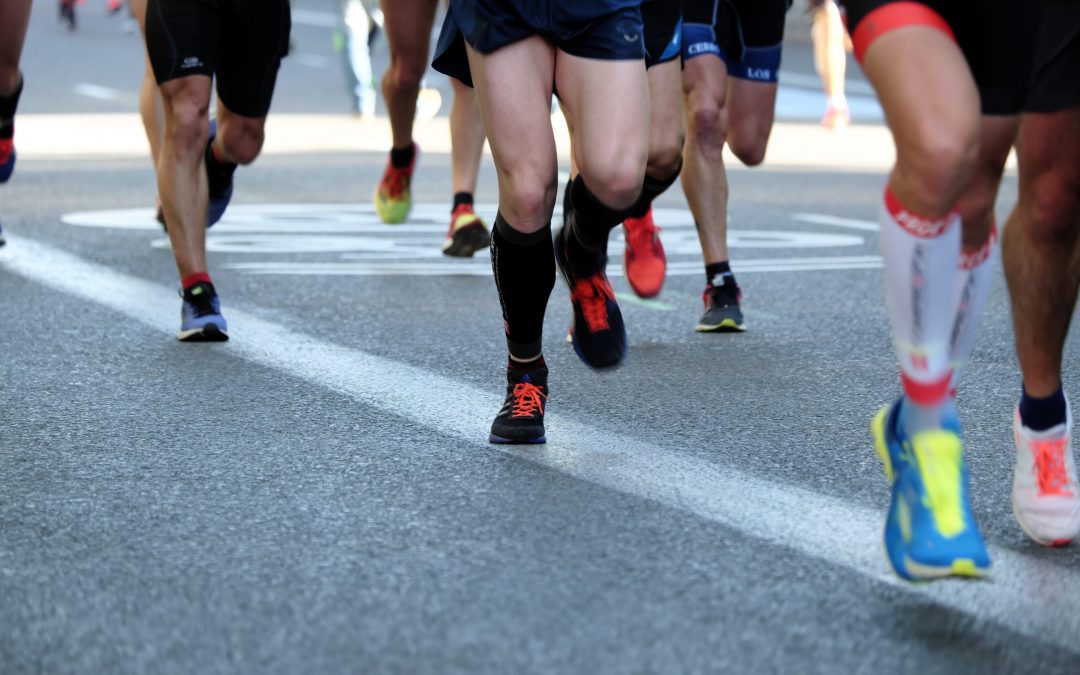At Primal, we have been noticing an increase in running-related injuries for people who have either taken up running or those looking to prepare for an upcoming event. Below are some handy tips that you can apply to not only prevent the risk of injury but also perform to the best of your ability!
Happy Running!

Important Run Preperations – Physiotherapy
1.Start Early
If you have a fun run set in your sights, start now! Whether it be a 5km park run to the upcoming Melbourne Marathon (Will Arnel, our physiotherapist is training for this), you must not leave your training to the last minute. Allowing time to adequately prepare will allow your body to adapt to the race day pace and duration.
2.Stick to a program
Running involves progression. This means requiring goals to be set – this is where a running program can kick in. The most important thing is to be able to progress at your own pace. Everyone has to start somewhere but knowing when to progress might be a difficult task. As for the first point, start early, a good running program usually has a timeframe of 12 weeks.
- First thing is to be able to run at a comfortable pace, whether this means running slowly. Being consistent is far more important than speed at the start.
- It is important to hold yourself accountable by making a plan for the week ahead of you of when you will be running and for how long.
- If this is written on paper, there is a higher chance you will feel obliged to do it and make it a habit over the weeks.
- As you build experience over the next few weeks, you can start thinking about pace and distance, however at first just aiming to be able to run 30 minutes a time could be a good goal and this is often a good starting point for those who want to perform a fun run of 5km distance.
3.Allow for ample rest
Often, people who are training for upcoming racing events create their running programs without considering time for rest. Rest, or what we like to call ‘active recovery’ is essential for allowing the body’s systems to adapt to increases in training load and intensity, whereby you will be fitter after the rest, without running the risk of overtraining. In general, allowing 24-48 hours between set runs gives time for muscles and especially tendons time to repair and regenerate. I must emphasise that rest does not mean sitting on the couch and watching Netflix but rather working on different aspects of your fitness, whether it be strength, mobility alongside recovery walks/jogs to accelerate this process.
4.Get run strong
Running isn’t just about running! For someone who has never run before and is now attempting to run 30 minutes straight will lead to what we call overuse of the muscles. This is when the muscles get shocked into an activity that they have never done before and are not able to keep up with it. Therefore just as you are progressing with your running, it is important to look after your muscles too! This can be done by doing a leg workout routine in the gym that incorporates working on the quads, glutes, hamstrings and calves. Whilst the most important thing is building strength, building endurance is just as vital. These exercises should be done around 3 times a week to build the capacity of the muscles to take on a load of your running!
5.Sort out any “niggles” ASAP!
Rarely do runners go through their training program in preparation for their upcoming race without having to deal with some sort of niggle. The wise runner will ensure that any non-general soreness is addressed immediately, seeking the appropriate treatment, while the gung-ho runner may try to push through – rarely does this work it is often detrimental to the runner. Seeing a physiotherapist as soon as any sort of niggle arises will not only allow you to get rid of any potential chance of injury but also provide you with guidance for injury prevention and enhanced running performance.

Runners Program for Marathons Physiotherapy
Book in with one of our friendly physiotherapists today, whereby they will be able to fix any running-related problems and ensure you give yourself the best chance to run well come race day!
—

Will Arnel Physiotherapist at Primal Physiotherapy Camberwell
About Will Arnel & Primal Physiotherapy
Will graduated from the University of Melbourne completing his Doctor of Physiotherapy. Will’s drive to see the best out of his patients stems from working in high performance and rehabilitation at the Geelong Football Club & the University Blues Football Club. In his spare time will enjoys a quick round of golf, cycling the Yarra & playing cricket in the local competition.
Will is a Physiotherapist at Primal Physiotherapy which is a leading Physiotherapy clinic with state of the art rehab facility to help their clients return back to life, work, and exercise pain-free.
Primal Physiotherapy Braybrook
10/227 Ballarat Rd
Braybrook VIC 3019
(03) 9995 8044
https://primalphysiotherapy.com.au/braybrook
Primal Physiotherapy Taylors Hill
127 Gourlay Rd
Taylors Hill VIC 3037
(03) 8315 7182
https://primalphysiotherapy.com.au/taylors-hill
Primal Physiotherapy Camberwell
782 Burke Rd
Camberwell VIC 3124
(03) 9973 3090
https://primalphysiotherapy.com.au/camberwell

